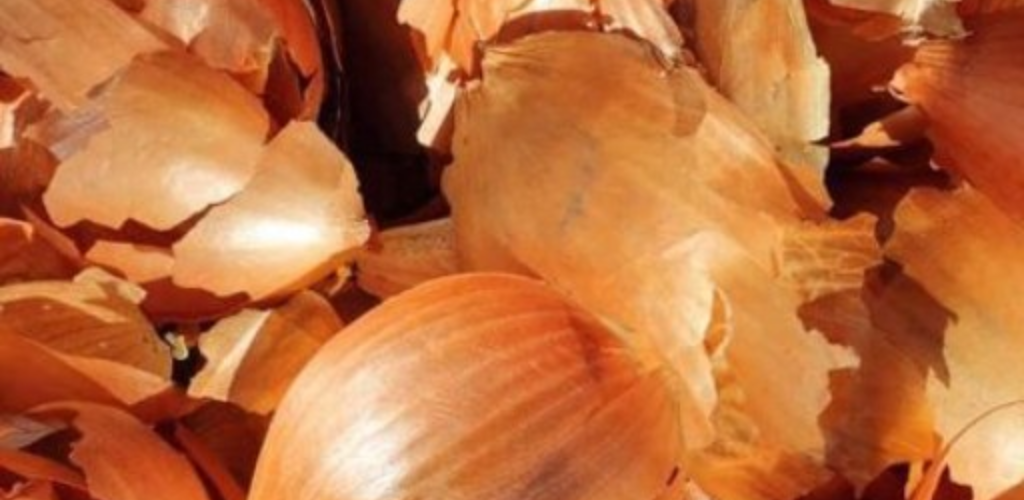Why shouldn’t you throw away onion peels?
Modern cooking invites us to be more aware of the waste we generate and to look for creative ways to make the most of all the ingredients. One of the most underrated resources in our kitchen are onion peels.
Often, we throw them away without knowing that they hide endless benefits for both the garden, beauty and more. In this article, we’ll explore how onion peels can be an unexpected and valuable ally in your home.
Benefits of using onion peels
for the garden
Onion peels can be an excellent addition to your garden, providing nutrients and acting as a natural pest repellent.
1. Natural fertilizer: Onion peels are rich in nutrients such as potassium, calcium, iron, magnesium and copper. As they decompose, these nutrients are released into the soil, improving its quality and aiding healthy plant growth. You can make a tea from onion peels by boiling them in water and, once cooled, water your plants with this nutritious liquid.
2. Pest Repellent: The strong smell of onions can act as a natural repellent against common garden pests such as aphids and mites. Simply place onion peels around your plants or make a solution with water and onion peels to spray on the leaves.
for beauty
Onion peels can also be a valuable resource in your beauty routine, providing benefits to your skin and hair.
1. Facial toner: Onion peels contain antioxidants that help fight free radicals, responsible for premature skin aging. You can prepare a homemade facial toner by boiling the peels in water, letting them cool, and applying the liquid with a cotton ball to clean skin.
2. Hair Treatment: Using onion peels on your hair can strengthen it and improve its shine. Boil the peels in water, let the liquid cool, and use it as a last rinse after washing your hair. This treatment can also help reduce dandruff and promote a healthy scalp.
Other benefits
In addition to their garden and beauty applications, onion peels have other practical uses that you may not have known about.
1. Natural dye: Onion peels can be used to dye fabrics and Easter eggs naturally. Boil the peels in water and submerge the object you want to dye. Depending on the length of the bath, you can get a range of colors from pale yellow to deep brown.
2. Compost improvement: Adding onion peels to your compost bin can enrich the final compost with additional nutrients, accelerating the decomposition process and improving the quality of the compost.
3. Home remedy: In traditional medicine, onion peels have been used to prepare infusions that help relieve cold and flu symptoms, thanks to their anti-inflammatory and antibacterial properties.
In conclusion, onion peels are a valuable and multifaceted resource that can transform your home and garden in surprising ways. The next time you peel an onion, think twice before throwing away the peels and consider how you can take advantage of its hidden benefits.
